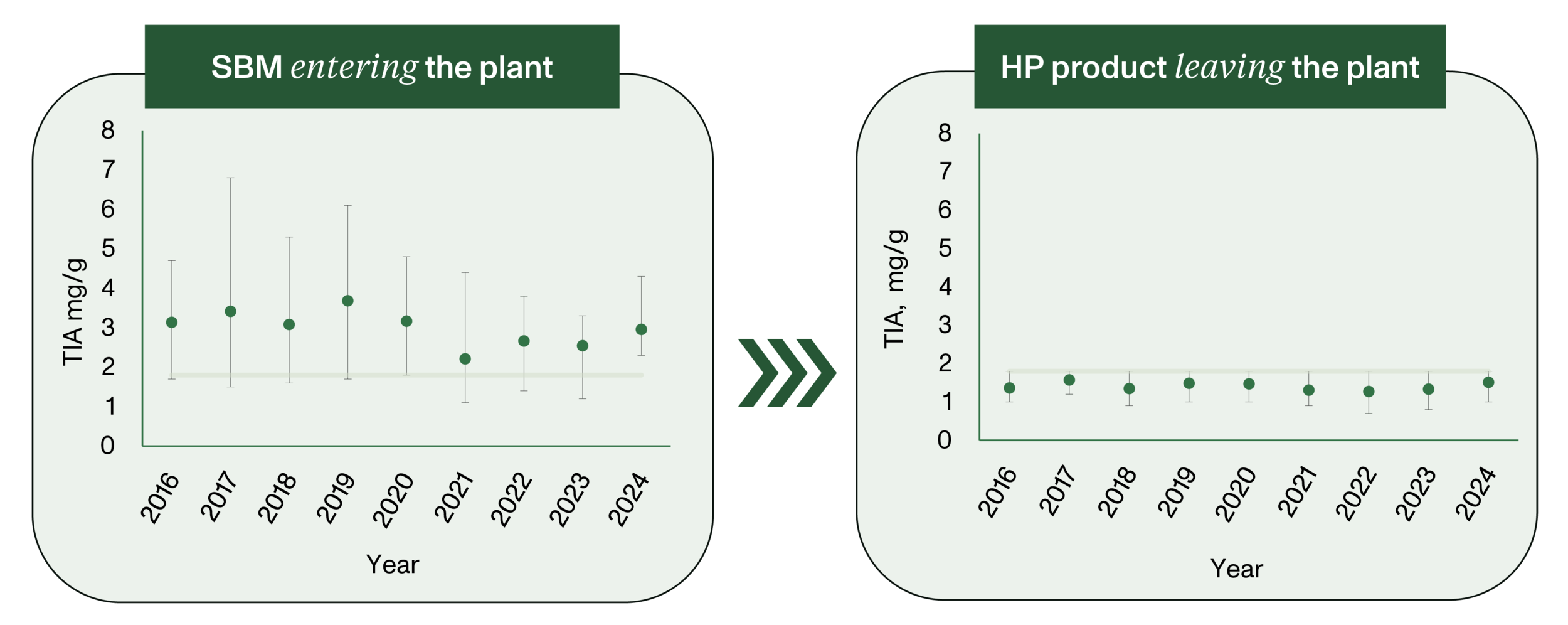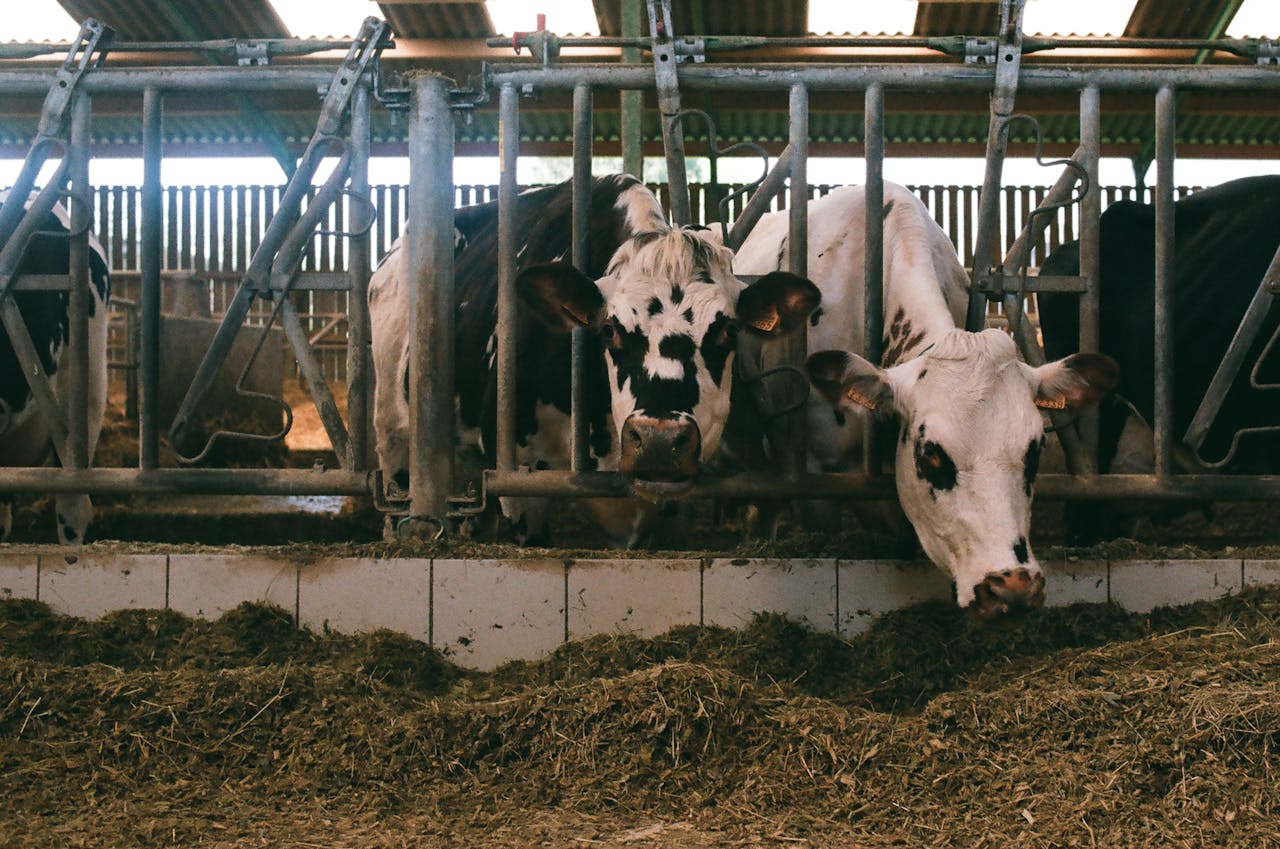Hamlet Protein ensures consistently low levels of antinutritional factors (ANFs) in every batch, helping prevent digestive issues, reduce oxidative stress, and support growth.
Soybean meal is the most common protein source in pig and poultry diets due to its rich protein content and ideal amino acid profile. However, soybean meal contains ANFs like trypsin inhibitors, β-conglycinin (β-con), and galacto-oligosaccharides, which reduce digestibility and can cause intestinal damage, oxidative stress, and diarrhea.
- Trypsin inhibitors inhibit trypsin, an enzyme critical for protein digestion, thereby reducing the digestibility of all proteins in the diet – not just those from soybean meal. This undigested protein is fermented in the hindgut, leading to metabolites that can impair growth and performance.
- β-con is an allergenic storage protein in soybeans that damages the intestine and triggers inflammatory responses.
- Galacto-oligosaccharides (like stachyose and raffinose) cannot be digested by pigs. They ferment in the hindgut and draw water into the intestines, speeding up digesta passage and impairing nutrient absorption, ultimately impairing growth performance.
The presence of these ANFs limits the inclusion of soybean meal in diets for young animals.
How Hamlet Protein removes ANFs
Since the 1990s, Hamlet Protein has been a trusted leader in specialty soy protein with a strong focus on delivering consistently high-quality products. We use a patented enzymatic process combined with gentle heat treatment to reduce ANFs without compromising protein availability. Reducing ANFs to levels that young animals can tolerate allows them to fully digest dietary protein and obtain its nutritional value.
The continuous flow system ensures soy, water, and enzymes are precisely mixed and treated under optimal conditions. The drying process then operates at temperatures that effectively deactivate all enzymes and thereby stabilises the product.
Each shipment of soybean meal varies in quality, so we continuously adjust our production parameters to create a standardised product (Figure 1), just as nutritionists adjust feed matrices to achieve stable quality. This means you do not have to worry about batch-to-batch variability or manual matrix tweaks.
If you’d like to see our Optimisation Datasheets, reach out to your local Hamlet Protein contact.
Consistency despite raw material variation
Soybean meal and soy protein products vary greatly in nutrient content and ANF levels due to differences in soybean variety, climate, and processing conditions (Figure 2). This variability often forces nutritionists to tweak feed matrices.
Hamlet Protein continuously monitors and controls every stage of production, guaranteeing consistency regardless of the variations in ANF contents in our raw materials (Figure 2).
Our quality program allows us to put a specification on our ANF levels and consistently meet the specified levels.

Combat weaning challenges with a reliable protein source
Weaning is one of the most stressful phases for piglets. They’re separated from the sow, transition to cereal-based feeds, and are often mixed with piglets from other litters. This process induces oxidative stress and raises inflammation markers.
Including soybean meal in this phase introduces variability, especially due to ANFs, which can compromise digestibility and performance.
Hamlet Protein products mitigate this risk by providing a consistent, low-ANF alternative. Our ingredients support gut health, promote early feed intake, and reduce inflammation. Trials have shown that piglets fed Hamlet Protein instead of untreated soybean meal experience lower oxidative stress and fewer digestive issues.
Supporting gut development early sets animals up for long-term success. Instead of overloading an already vulnerable digestive system, you can safeguard it with a consistent and safe protein source.
With over 30 years of expertise, Hamlet Protein continues to set the standard for consistent, high-quality soy protein. Contact us to learn more about how we can support your feeding program.
References are available on request.


